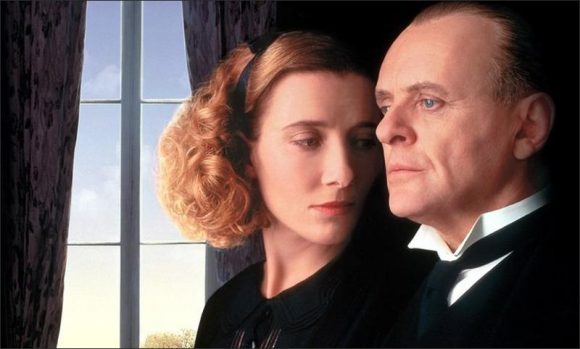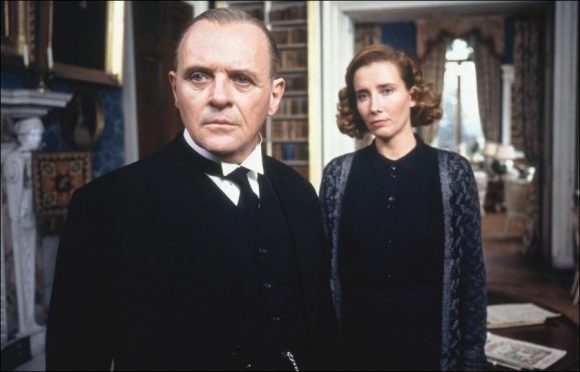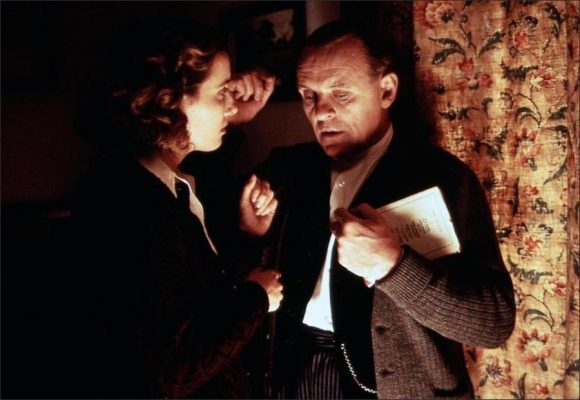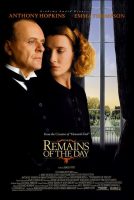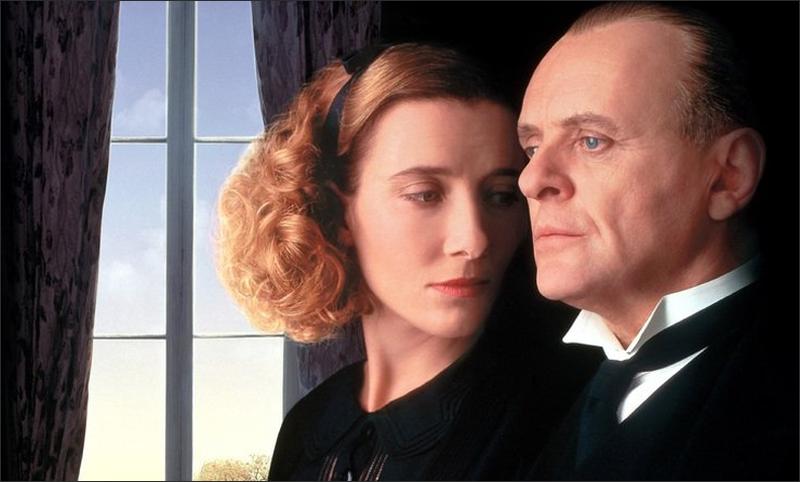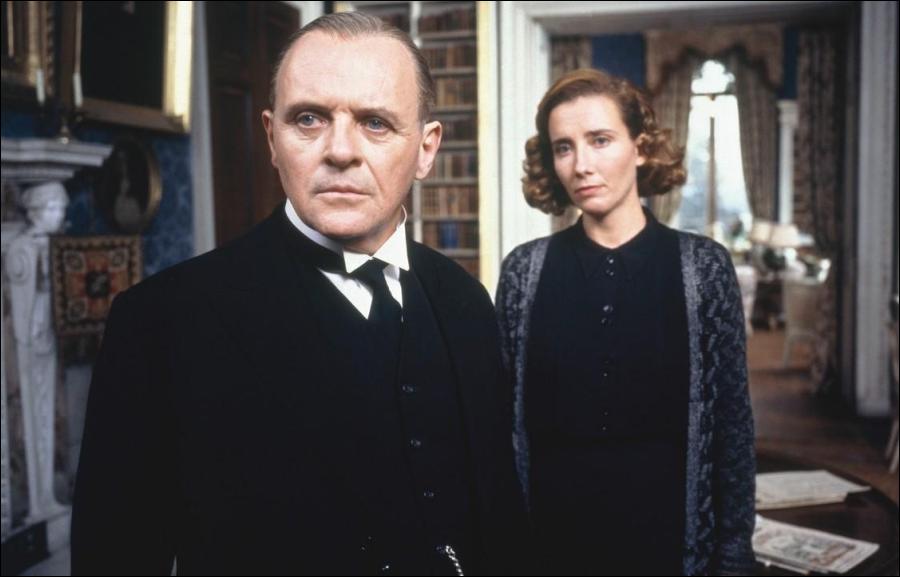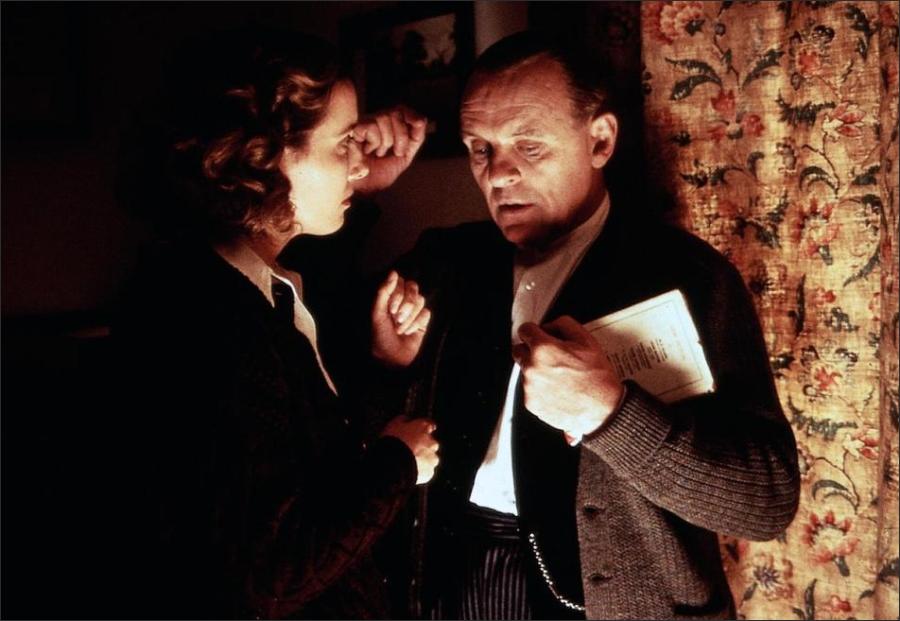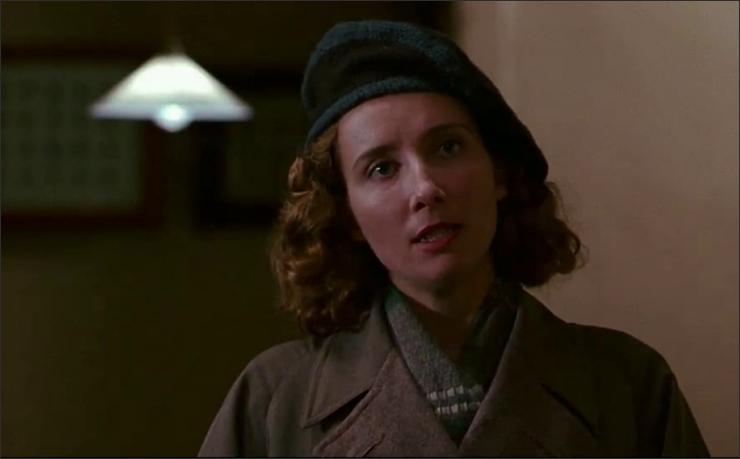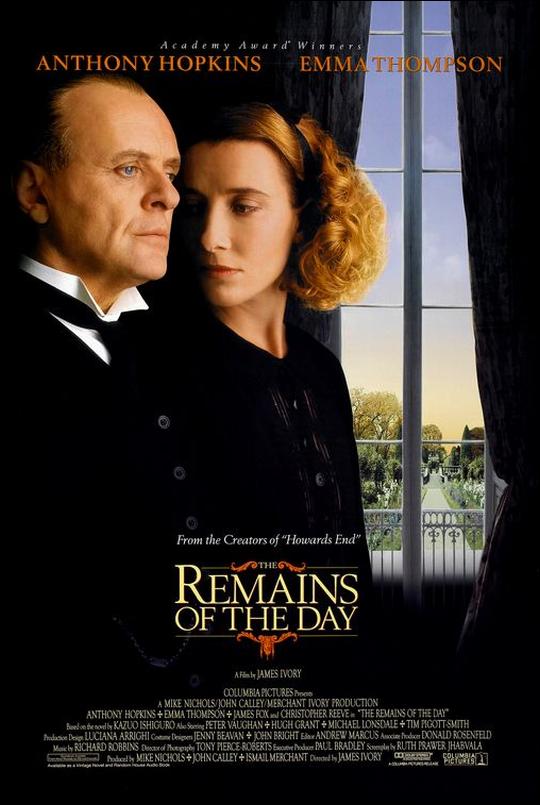Stevens (Anthony Hopkins), the honorary head of the Darlington Mansion, has done his job for many years and has never failed to commit himself to his devotion to his employer, Nazi sympathizer Lord Darlington. Stevens, who cares more about the necessities of his work than his personal life and emotions, does not allow the closeness of the housekeeper Ms. Kenton to go beyond the business relationship. Years later, Stevens took a vacation when Darlington Mansion changed hands and the order he knew was disappearing.
The film starring Anthony Hopkins and Emma Thompson and starring in an unforgettable acting, was the best actor for the 1993 Oscar Awards. She had been nominated for eight actors, including best actress, best director. Kazuo İşiguro’s novel, a modern classic, was awarded the Booker Prize, the most prestigious literary prize in England, in 1989.
Based on the 1989 Booker Prize winning novel by Kazuo Ishiguro. The Remains of the Day is told in a series of flashbacks as Stevens, near the end of his life, makes a trip across the English countryside for a meeting that he hopes might reconcile his past mistakes. Directed by James Ivory and starring are Emma Thompson, James Fox, Christopher Reeve, Peter Vaughan, Hugh Grant, Michael Lonsdale, Tim Pigott-Smith, Paula Jacobs, Abigail Hopkins.
Film Review for The Remains of the Day
I met Kazuo Ishiguro through a film. It was the mid-90s, I went back to school and enrolled in a graduate program. I was working on weekends and going to classes on weekdays. My time and money were very limited. My only fun was to go to the movies once a week. I jumped on the bus and went to downtown, entered a movie I was looking for, and I forgot everything for a few hours.
One time I saw a movie called The Remains of the Day. I was so impressed when I got out of the movie that I immediately bought a ticket and re-entered the film. I sat in the back seat somewhere and plunged into the same atmosphere as if I had never left. After getting out of the cinema, I found Kazuo Ishiguro’s novel that inspired the film and immediately set out to read it.
The film was beautiful, but the novel was simply wonderful. I realized that what struck me was not the acting that Anthony Hopkins had skillfully used his blue eyes, but the uniqueness of Ishiguro’s story. The Remaining Day’s simple and measured language, the style of the character’s delicacies, and the simple but impressive plot, completely captured me. In this novel, which at first glance seemed to be an ordinary love story, there was something under the skin of man. I was simply fascinated.
Ishiguro received the Nobel Prize for Literature last week. I don’t think this award has been in this place in a long time. In fact, one of the best hundred novels ever written and a futuristic dystopia, Never Let Me Go alone was enough. When I heard the award, I was amazed to think of Günden Kalanlar instead of this novel I loved and read several times. I thought it must have been the jolt of this first encounter I mentioned above.
The Remains of the Day was the story of the years he spent in the service of Lord Darlington, the master of a valet named Stevens. The novel opens with Stevens receiving a letter from Miss Kenton, the butler woman, whom Stevens had previously worked with, and returns to the mansion where both worked and II. Before World War II he was transporting to England. Stevens was getting ready to meet again with Miss Kenton, whom he loved deeply, but could not open up because he had never confessed his feelings to himself.
On the other hand, he remembered the relations of a completely closed era with the war and slowly opened up the barren geography of his life. It was a novel of disappointment, missed opportunities, abandoned jobs. It was an unforgettable story after months and years. He entered into the softest part of the human being and burst into nostrils and reminded himself by whimpering from time to time.
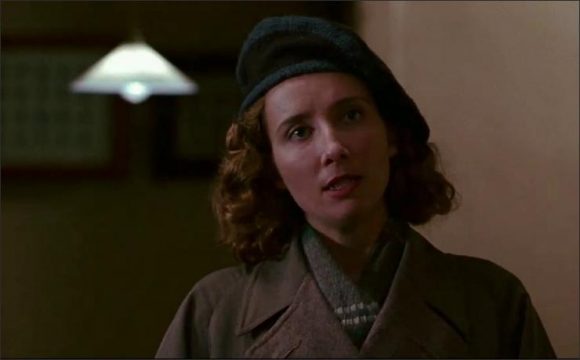
I was particularly stuck on a stage. Maybe because it has a density specific to Ishiguro. In this scene, Miss Kenton enters Stevens’ study with a vase of flowers. He probably just wanted to leave the flowers and get out. But that evening, Stevens is in the room, reading books. Miss Kenton asks which book she read. When Stevens reacts unexpectedly and tries to hide the book, she thinks the book is something “racy”. “Why don’t you show it to me, Mr. Stevens? Sor he asks him, unuz Do you think that’s going to make a bad impression on me?” But Stevens was so upset that he got up and put his back on the wall. He’s worried about someone who realizes he has no place to run. He keeps his book tight. The two are standing face to face. The air between them became heavier and the tension became almost palpable.
Stevens is surprised by this change. Time seems to stop him. The room was quiet, everything remained in place. She reached out to me and slowly untied my fingers and tried to free me from the book. I decided that the best thing to do was to look away, but he was so close to me that I could only do this by turning my head at an unnatural angle. Miss Kenton continued with the same grace, trying to pick up the book by opening my fingers almost one at a time. This seemed to me to take too long. But I managed to keep my posture. I finally heard him say, “God! Mr. Stevens, this book is not a blatant thing! It’s just an emotional love story.”
Stevens fears that his emotions will emerge and asks Miss Kenton to leave him alone. The woman leaves offended. This is a scene that can be considered a summary of the whole novel. It is the story of something that is very close to being, but not. It tells of a moment in which the possibility of rapprochement appears but then moves away at the same speed.
Ishiguro is the master of such moments. Heartbreak and repressed emotions are never vulgar and ordinary in his hands. It manages to express them in a way that has never been explained before, without exaggeration, ornamentation and scrubbing. After the steward leaves the room, Stevens explains why he read “such emotional books.. It is as if he is trying to tell the reader as soon as possible and clear himself. He reads them in English to make them cleaner and smoother. When we hear this excuse, it seems to us that Lord Darlington speaks. This is Stevens’ curse: great admiration and loyalty to the world his master represents. That is why he wants to fulfill his expected role in a world that is determined by others.
However, the world is on the verge of major changes. As we will learn as the novel opens, this period will end and the masters will change. The servants will be cast aside as rags. Ishiguro, in Stevens’ personality, draws a very impressive picture of British society, where classes are separated by sharp lines and even the strongest emotions live within certain limits. As the novel unfolds, we realize that we have witnessed Stevens’ special history as well as the story of a great social change and destruction. Ishiguro describes them both in a graceful manner.
What’s Left of the Day isn’t just an emotional love story, to say in Miss Kenton’s voice. It’s much more than that. Like all Ishiguro novels.
All about The Remains of the Day.
The Remains of the Day (1993)
Directed by: James Ivory
Starring: Anthony Hopkins, Emma Thompson, James Fox, Christopher Reeve, Peter Vaughan, Hugh Grant, Michael Lonsdale, Tim Pigott-Smith, Paula Jacobs, Abigail Hopkins
Screenplay by: Ruth Prawer Jhabvala, Harold Pinter
Production Design by: Luciana Arrighi
Cinematography by: Tony Pierce-Roberts
Film Editing by: Andrew Marcus
Costume Design by: Jenny Beavan, John Bright
Set Decoration by: Ian Whittaker
Art Direction by: John Ralph
Music by: Richard Robbins
MPAA Rating: PG for themes.
Distributed by: Columbia Pictures
Release Date: November 5, 1993
Views: 194
